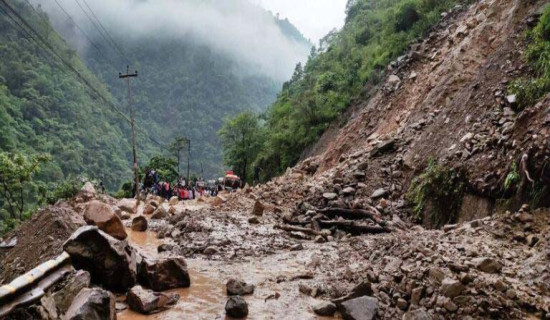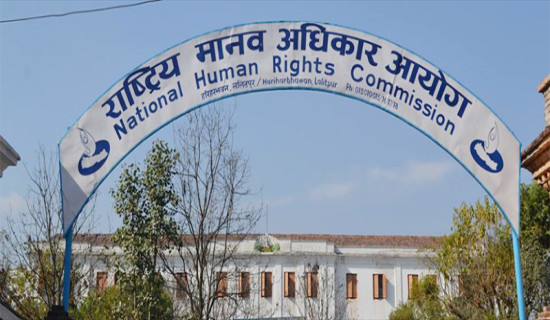- Saturday, 28 September 2024
Manage Garbage Properly
Bini Dahal
An excessive production of solid waste is one of the major issues associated with growing population and urbanisation. Kathmandu has been familiar with this problem for years. Like the previous elected authorities of the Kathmandu Metropolitan City (KMC), the new leadership is also grappling with this problem.
With the availability of appropriate technologies and good systems, solid waste can be managed easily in modern times. However, in the context of Nepal, we have so far failed to do so. There are problems at multiple levels. At the household level, individuals believe cleaning their houses and handing over the garbage to the waste collectors is enough. The garbage collectors, on the other hand, are more focused on ensuring that the trash collected reaches the respective landfill sites.
It is embarrassing to acknowledge that this is how we have managed our solid waste. Limitations are everywhere. Even landfill sites are no exception. For the past many years, the Kathmandu Valley’s waste had been dumped at the Sisdole landfill site of Nuwakot. And now that the site has been carrying waste beyond its capacity, the government has been spending a lot of monetary and other resources on constructing a new landfill site at Bancharedanda of Dhading. However, these two places are located just within the periphery of two kilometres.
The much-touted Bancharedanda landfill site may also not be a sustainable solution to the burgeoning garbage problem. The locals residing in the Sisdole area have continued to suffer from the bad smell. Their basic right to live in a clean and healthy environment has been completely ignored. And we can guarantee that the new landfill site will have the same situation after certain years.
However, the KMC’s newly-elected mayor Balendra Shah has assured that his team will remove the smell coming from the Sisdole landfill site in a week by using chemicals. Under the KMC’s proposed plan, a system will be set up to make compost manure from the garbage and to extract gas by drilling. To ease the garbage management, the KMC is also enforcing a plan to encourage people to separate perishable and non-perishable garbage before disposal.
The mayor’s vision and commitment are really great. But both the mechanism and the people should be supportive and flexible enough to deal bring about noticeable changes in the management of waste. We, as individuals, have also not been so serious about this problem. We have not carefully separated biodegradable and non-biodegradable waste till now.
The waste that is haphazardly dumped before its transportation to the landfill site is problematic for us. We scrunch up our nose for the waste we ourselves have created. It is saddening that every successive government has failed to introduce strict laws and proper technologies for managing the solid waste in a sustainable manner.
We need to learn something the nation like the Republic of Korea (RoK), which is considered pioneer in better waste management. In that country, there are two separate bags for food waste and recyclable waste, all can be recognised through colour differentiation, giving a clear indication as to what kind of waste can be put in it and what cannot be. There also exist hefty fines and punishment for those defying the rules. So, the people rigorously abide by the rules.
The KMC’s new leadership should not just focus on seeking a panacea to the existing waste management problem but also find such preventive measures that stand the test of time while coping with issues of rapid urbanisation and waste generation.














